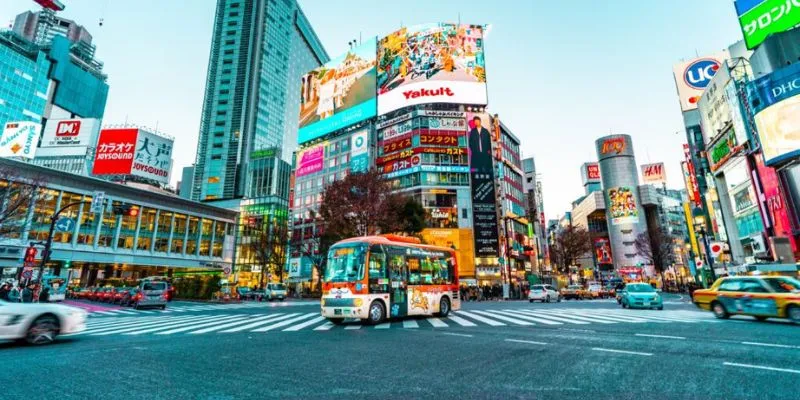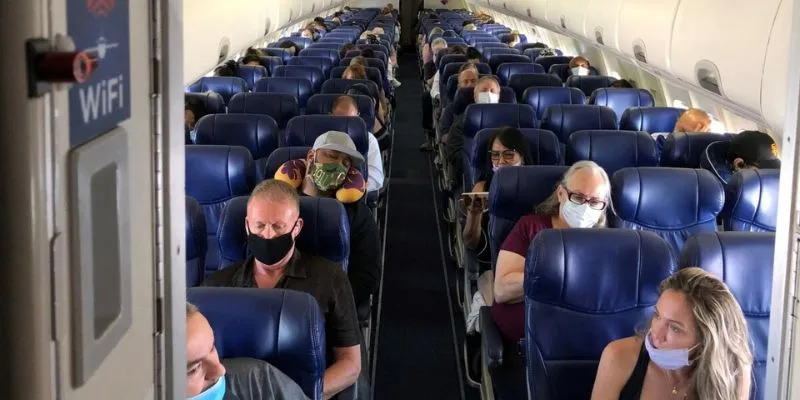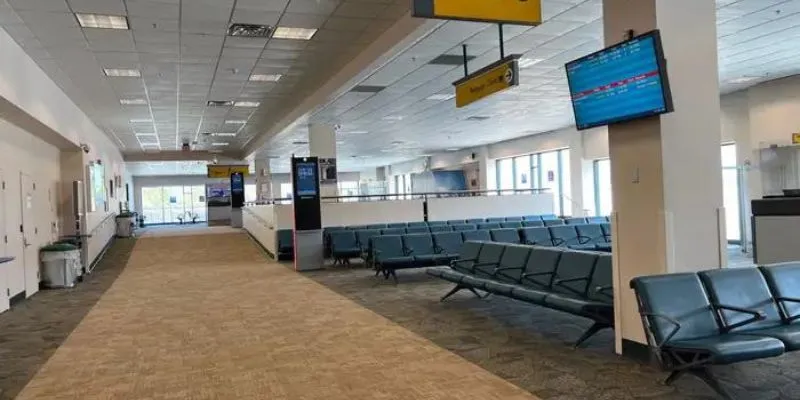Known for its exuberant nightlife, culture, fashion, cutting-edge technology, and safety, Tokyo is one of the leading destinations for business travel. In the previous year, over a million international visitors stopped by Japan’s capital for business. One of the many reasons why Tokyo is the top choice for most business deals is because of its strong legal framework that offers security to all associated parties. The place has enticing venues for exhibitions and conferences and is nowadays ruling in international trade and multinational sectors. If you are planning a trip to the land of the rising sun, cover up on the etiquette and regulations to impress your business partners. Make a mark on all you meet there, here’s a rundown on “A Business Traveler’s Guide To Tokyo.” Did you know that Japan is the world’s third-largest economy after the USA and China?

Visa
The US is a visa-exempt country in Japan. So if you are visiting the country for a short while, like 90 days, you do not need it. However, if you are doubtful, you can reach out to the embassy about the Japan short-term business visa. Make sure to carry your valid passport and a return or onward ticket for validation of your legal stay in Tokyo. Learn about special visas if your stay exceeds 90 days.
Currency
In Tokyo, you can make monetary transactions using the Japanese yen. Exchange them at the “Authorized Foreign Exchange” counters at the airport, banks, etc., You may also use the ATM to withdraw cash up to 100,000 yen if your card is valid in Japan. There is no limit to the cash you are allowed to bring in your international business trip to Japan but you must explain your deal to the Customs at the airport if it is more than 1 million yen. GlobeConvert or Wise are the applications you can use to keep track of your expenditures after the currency conversion. Use Traveler’s checks as foreign cards may not be acceptable at all places.
Language
Even though you will find English speakers in Tokyo, it is essential to be accustomed to some basic phrases to greet and make better connections. Japanese are very adamant about their etiquette. Therefore, learn to say Konnichiwa which means “Hello”, Arigatou Gozaimasu which is for “Thank you” and sayonara is used for goodbye. Download Duolingo on your device for a quicker approach. In case you want to learn Japanese basics, practice by watching basic Japanese lessons on YouTube and learn pronunciation.
Some more helpful phrases are:
- Sumimasen– excuse me
- kudasai– Please
- Konnichiwa– Good morning
- Yōkoso– Welcome
- Eigo dekimasu ka?– Do you speak English?”
- Toire wa doko desu ka?– Where is the bathroom?
Etiquettes
Japanese always appreciate punctuality, so be on time for the meeting. In case you are planning to gift something, make sure it is not overly expensive and well wrapped. In case you receive one, do not open it immediately in front of the person. Present the business card with both your hands and bow a little to respectfully greet. If you are visiting a traditional restaurant or someone’s home, you may have to remove shoes, so be prepared. Dress conservatively, with women in suits or skirts below the knee length and men in formal suits with long sleeves. “san” is a respectful title used after the surname that the Japanese use to address their colleagues.
Attire for Business Meetings
Japan is a blend of ultramodern and traditional, whether it is the skyscrapers vs historic temples, we are speaking of or the code and conduct of the dress code. Culture plays an important role, even in business, and you are supposed to dress etiquette there too. If you are planning to wear a suit, make it formal with the least detailing and minimalist fashion, in pastel shades and darker outer. Do not wear too loud colors and heavy jewelry. Modesty and minimalism are the paramount Japanese culture, so stick by it. Make sure your clothes are nicely tailored and ironed. It is essential not only for a Business trip to Tokyo but for every other place you go for a professional meeting.
Food (Include table manners as well)
Practice saying “itadakimasu” before your meals and “gochisosama deshita” after finishing. When in Tokyo, in a dining room, you do not pour yourself a drink. As you prepare a glass for others, they do the same for you. If you do not know the use of chopsticks, about it all costs, unless you want to be noticed doing funerary practices of pointing, stabbing food, or sticking them upright in rice. Do not discuss business on the table, until the host initiates it. Tipping is considered rude in Japan and is not customary. So, if you like the food, appreciate it because gratitude is a modest way and accepted in the country.
Transportation
If you seek help with getting around the bustling city of Tokyo, use trains, subways, and buses. Save yourself from spending hefty sums on taxis. JR Yamanote Line of the Tokyo Metro connects all major business areas in the city. You can opt for a Suica or Pasmo card for convenient transportation in all modes. In case of longer routes, use the world-famous Shinkansen (bullet train) for which you can pay using cash or card. 7 to 9 AM and 5- 7 pm are the rush hours so try to avoid these times if you want to reach the venue on time, and punctuality is a key to Japanese customs.
Explore
Now, if you are through with the business deals, it is also important to make the most of your time in the beautiful landscape in one of the world’s most livable cities.
- Places to Visit– Imperial Palace, the Senso-ji Temple, and the Tokyo National Museum. Tokyo Skytree is the tallest tower in the world. Meanwhile, the Tokyo Metro Ginza Line is Asia-Pacific’s oldest underground metro line.
- Shopping– Takashimaya and Isetan for souvenirs, Omotesando for luxury items, and Nihonbashi for traditional items. Carry cash when visiting local small shops as they do not accept cards.
- Stay– Major places to stay near the financial districts and major corporate offices are Marunouchi/Otemachi, Shinjuku, Roppongi, and Ginza.
- The Tokyo Station Hotel is a luxury accommodation located in Marunouchi/Otemachi.
- Park Hyatt Tokyo or Hilton Tokyo are situated in Shinjuku.
- Grand Hyatt Tokyo or The Ritz-Carlton Tokyo are the perfect stays near Roppongi.
- Imperial Hotel Tokyo and The Peninsula Tokyo are in Ginza featuring the best dining and shopping neighbourhood.
Browse a comprehensive list of airline offices around the world, including locations, contact information, maps, and other important details.
Key Takeaways!
- Arriving early for meetings is highly appreciated in Japanese culture. It is a sign of respect and people value punctuality very much.
- When presenting meishi, or business cards, use both hands and do the same when receiving them.
- Wear conservative attire in a professional setting.
- Learn some common greetings and showcase your respect for the culture.
- Gifting should be discrete and do not present anything highly expensive.
- Do not discuss business when dining, and use the chopsticks properly, or simply refrain from using them.
- Speak soft and show gratitude with low bows. Do not be loud and keep a reserved appearance,
Frequently Asked Questions
The US is a visa-exempt country in Japan. When it comes to a short-term business trip (up to 90 days). However, confirm Japan business visa requirements once via the embassy before the visit.
Yes. It is one of the leading countries in terms of business and multinational corporations.
Automaker, Toyota is the largest company in Japan. Meanwhile, it is the top producer of manufactured goods globally.
Yes. Absolutely. It is one of the safest countries in the world for tourists.
Yes. If you are visiting Tokyo, have a good budget.
As long as you abide by the customs and traditions of the country, all tourists are welcome in Tokyo.
Yes. If you are visiting big cities like Tokyo, it is easy to make your way by speaking in English.
Yes. Most smaller shops and transport facilities use cash as the primary mode of payment.
No. Foreign currency is not allowed for transactions in Tokyo.
You can use your debit card in Tokyo at additional charges.
$100 to $300 per night is the average cost you can expect at a hotel in Tokyo but it may vary according to the location and amenities.
The shoulder seasons, around April-May or September-October, are best to visit Japan.

